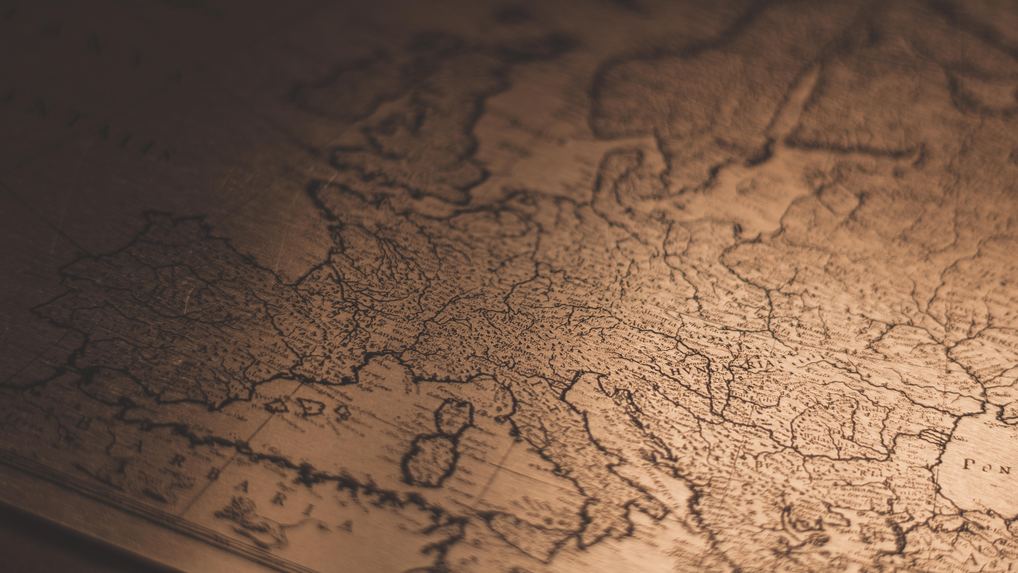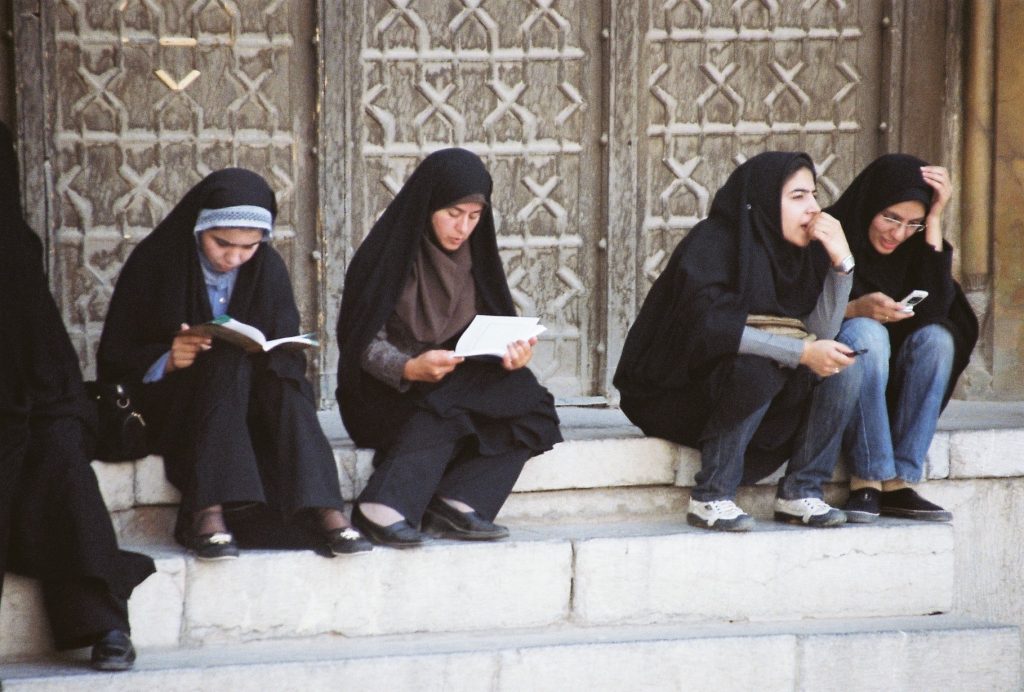Benjamin Paloff guest edited MQR’s Fall 2019 Europe Issue, and introduces the issue with the following essay.
I spent Election Night 2016 in a tense information blackout high above the Atlantic. My wife, Megan, was seated next to me, and my colleague Ewa, with whom Megan had translated a 1920s novel with an unrelentingly dim view of Poland’s then-new independence, was a few rows behind us. We were on our way to London for a symposium on Zofia Nałkowska, the novel’s author and a major cultural figure in Central Europe between the World Wars. e timing was such that we all had to go straight to the airport after casting our ballots. Flat-screen displays throughout the terminal were projecting a gobbledygook of early returns and wild speculation as we boarded our flight and wondered aloud whether the world we were soon to arrive in would be the same one that we were now leaving.
Flashes of this experience have come to mind repeatedly over the last three years. The dismayed look in the eyes of the crew, for whom globalization is more than mere concept, as they were preparing the cabin for arrival. Our own shell-shocked expressions facing each other on the Tube from Heathrow Airport. The random stranger who, correctly reading our faces and accents, threw his arm over my shoulder, squeezed reassuringly, and said,“It’s alright, friend: we just did the same thing, too.” And, of course, sitting in the small hotel room hurriedly rewriting my presentation, which had originally been about what Nałkowska’s novel of political self-destruction could mean for English readers after the Brexit referendum, now to include the American decision to follow a growing list of European democracies in collectively crapping the bed.
Such a grim characterization has little to do with political or economic preferences, whether one leans conservative or progressive, neoliberal or pro-welfare state, capitalist or socialist. Indeed, as polarized as public debate has become since the 2008 financial crisis, both domestically and worldwide, it has been remarkably light on policy. What it has provided instead is an ever-expanding stage for tribalism, often in its most virulently racist and xenophobic forms, and widespread approval of demagoguery and authoritarian rule. In other words, the turn toward what Hungarian Prime Minister Viktor Orbán has championed as “illiberal democracy” is not merely an expression of distrust toward how the European Union is administered, but a rejection of the European project as such. For the European experiment, much like its American counterpart, has only ever been a project. One could take it or—pace Brexit—leave it.
Literature, however, like the reality it inevitably reflects and probes, is not so simple. Writers, including those of a more traditionalist, localist, or even reactionary bent, are internationalists by default, in constant collaboration with interlocutors far distant or long dead. Good literature, the kind that sustains that communication across space and time, is critical and contemplative and at times maddeningly insistent on withholding the kinds of easy platitudes populists and salesmen o er in exchange for votes and money. For a careful observer like the German writer Jenny Erpenbeck, whose brief reflection “Palast der Republik” opens this issue of Michigan Quarterly Review, passing the now-demolished headquarters of the East German parliament is less an occasion to celebrate the dissolution of an oppressive regime, which occurred there in 1990, and more a time to reflect on how things have changed and continue to change. Less Look what we did!, more What are we doing? Less Look how far we’ve come!, more Where are we going?
We have formulated our work on this issue around that ethos. From the outset we have been invested in sharing material that takes stock of the European project, of multiculturalism, multinationalism, free movement, and cooperation across constituencies, with all the triumphs, failures, and ongoing challenges these ideals imply. We wanted none of the literary tourism one finds so often in “international” journal issues. None of the historical self-congratulation that, as Petra Hůlová’s essay in these pages notes, appears left and right (and Left and Right) to mark round anniversaries. No easy way out—not for a country, nor for any one countryman—nor
any formula for what Europe ought to mean to someone trying to get in, whether the refuge they seek is intellectual or very much physical. Thirty years after what had been the Berlin Wall began to flood the souvenir market with indistinguishable chips of concrete, Europe remains an idea to be grappled with, not merely a geography or a market to be conquered.
So, as some of the same people who three decades ago dismantled autocracy in Europe are using their hard-fought freedoms to strip them from others, we are asking, What does Europe want now? These poems, essays, stories, and whatever Sergei Sokolovsky’s “Guide to Action” is do not answer that question, but instead find new ways of posing it. (Regarding the retreat into easy answers, see the 1973 dispatch from Georgi Markov that closes this issue, written to mark the United Kingdom’s joining the predecessor to the European Union.) Here are voices from Bosnia and Italy, Romania and China, the United States via Russia, Belgium via the United States, Sudan via England, and many other permutations besides, itself a reflection of reality as it is, not as it is sometimes sold.
We cannot proceed, then, without a word of thanks to the bridge-builders, often left unsung even as we enjoy the passage they have provided. Without translators, whose ear-to-the-ground attentiveness and linguistic artistry rank them among the most dangerous enemies to a closed society, we would not have heard of much of what we are printing here, let alone have much of it to print. Without MQR’s editorial staff and interns, itself a richly international gathering, this would be just one more echo chamber of “friends,”“likes,” and “retweets.”
Nearly a century has passed since Stephen Graham, a peripatetic British journalist, published his dispatches from across a fractured continent under the title Quo vadis Europa?, and today we are facing the future with similar trepidation and confusion. Such are the conditions that are vital for art and for which art itself is most vital. As China Miéville suggests, it is simultaneously impossible to think beyond the present—in effect, wherever we go, there we are—and crucial that we do so.
Thus, literature.
Read more of MQR’s Fall 2019 Issue on Europe, here.




